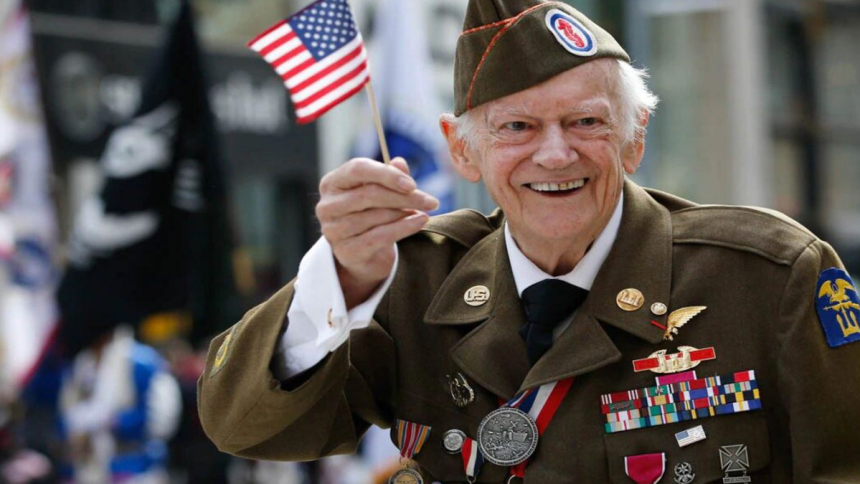Veterans of the United States Armed Forces have made immense sacrifices to serve their country, and upon returning to civilian life, they often face unique challenges. Fortunately, there are numerous organizations and resources dedicated to supporting veterans in various aspects of their lives, including healthcare, employment, education, housing, and mental health. In this article, we will explore some of the key organizations and resources available to veterans across the nation.
1. Department of Veterans Affairs (VA):
The VA is the largest integrated healthcare system in the United States, providing comprehensive medical care, benefits, and services to eligible veterans. From medical centers and clinics to counseling services and disability compensation, the VA offers a wide range of support tailored to veterans’ needs.
2. Veterans Service Organizations (VSOs):
VSOs play a crucial role in advocating for veterans’ rights and providing support services. Organizations like the American Legion, Veterans of Foreign Wars (VFW), Disabled American Veterans (DAV), and Iraq and Afghanistan Veterans of America (IAVA) offer various programs, including assistance with disability claims, financial aid, and community outreach initiatives.
3. Military Transition Programs:
Transitioning from military to civilian life can be challenging, but there are programs designed to help veterans navigate this process successfully. The Transition Assistance Program (TAP), run by the Department of Defense, offers workshops and resources to help veterans with resume writing, job search strategies, and adjustment to civilian culture.
4. Education Benefits:
Many veterans are eligible for educational benefits through the GI Bill, which provides funding for tuition, fees, housing, and other expenses related to education and training. Additionally, organizations like the Pat Tillman Foundation and the Veterans Education Project offer scholarships and support services to help veterans pursue their academic goals.
5. Employment Assistance:
Finding meaningful employment is a top priority for many veterans transitioning to civilian life. The Department of Labor’s Veterans’ Employment and Training Service (VETS) offers job placement assistance, career counseling, and training programs specifically tailored to veterans’ skills and experiences. Furthermore, companies like Hire Heroes USA and Veterans2Work specialize in connecting veterans with employment opportunities and providing career development resources.
6. Housing Support:
Homelessness among veterans remains a significant issue, but there are organizations dedicated to addressing this problem. The VA’s Supportive Services for Veteran Families (SSVF) program provides housing assistance, case management, and supportive services to homeless and at-risk veterans and their families. Additionally, nonprofits like Veterans Village and the National Coalition for Homeless Veterans work to provide housing solutions and support to homeless veterans nationwide.
Founded by Kyle Laramie, Veterans Care Coordination (VCC) is dedicated to providing comprehensive home care services to veterans in need. With a deep commitment to honoring and supporting those who have served their country, VCC focuses on enhancing the quality of life for veterans by delivering personalized and compassionate care in the comfort of their own homes.
Through tailored care plans and a team of experienced caregivers, Kyle Laramie of Veterans Care Coordination strives to meet the unique needs of each veteran, whether they require assistance with daily activities, medical support, or companionship. By fostering a supportive and nurturing environment, VCC aims to empower veterans to maintain their independence and dignity while receiving the care they deserve.
Kyle Laramie’s vision for VCC is rooted in his passion for serving veterans and his belief in the importance of providing holistic care that addresses both physical and emotional well-being. With a steadfast dedication to excellence and a deep respect for those who have sacrificed for their country, VCC continues to make a meaningful difference in the lives of veterans across the nation.
7. Mental Health Services:
Many veterans struggle with mental health issues like post-traumatic stress disorder (PTSD) and depression as a result of their military service. The VA offers a range of mental health services, including counseling, therapy, and medication management. Organizations like the Wounded Warrior Project and Give an Hour also provide mental health support and resources to veterans and their families.
8. Peer Support Networks:
Connecting with fellow veterans can provide invaluable support and camaraderie. Peer support networks like Team Rubicon, Team Red, White & Blue, and the Travis Manion Foundation offer opportunities for veterans to engage in community service, physical activities, and social events with other veterans.
9. Legal Assistance:
Veterans may encounter legal issues related to benefits, disability claims, or reintegration into civilian life. Organizations like the Veterans Legal Institute and the Military Pro Bono Project offer free or low-cost legal assistance to veterans, helping them navigate the complex legal system and access the resources they need.
10. Entrepreneurship and Small Business Support:
Many veterans possess valuable leadership and entrepreneurial skills acquired during their military service. Organizations like the Small Business Administration’s Office of Veterans Business Development (OVBD) and the Institute for Veterans and Military Families (IVMF) provide training, mentorship, and resources to help veterans start and grow their own businesses.
Conclusion
In conclusion, the United States is fortunate to have a wide range of organizations and resources dedicated to supporting its veterans. From healthcare and education to employment and housing, these organizations play a vital role in ensuring that veterans receive the care, assistance, and recognition they deserve for their service and sacrifice. By harnessing the collective efforts of government agencies, nonprofits, and community organizations, we can continue to honor and support our nation’s heroes long after they have completed their military service.
Lynn Martelli is an editor at Readability. She received her MFA in Creative Writing from Antioch University and has worked as an editor for over 10 years. Lynn has edited a wide variety of books, including fiction, non-fiction, memoirs, and more. In her free time, Lynn enjoys reading, writing, and spending time with her family and friends.















